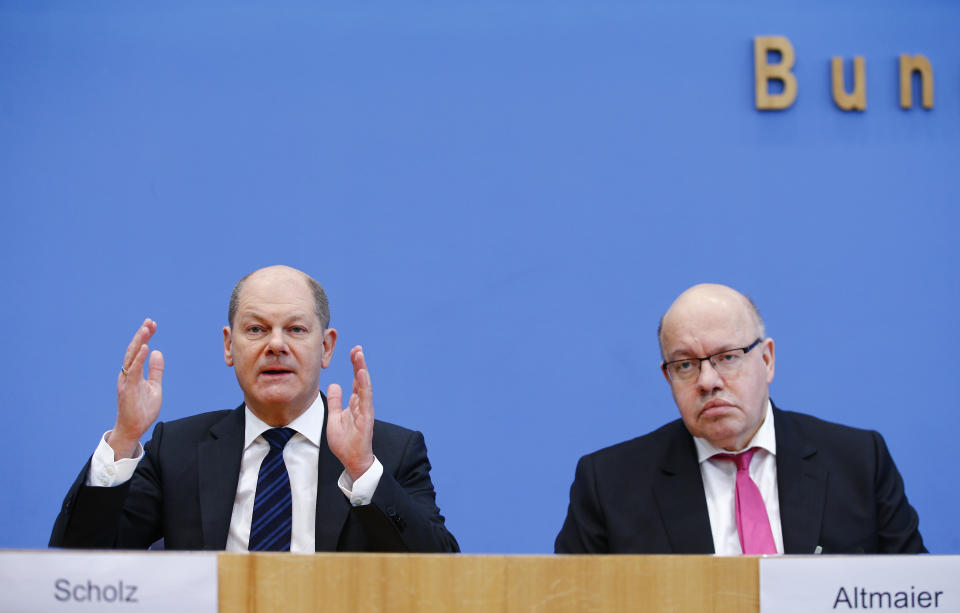Germany bids goodbye to ‘black zero’ with €750bn coronavirus package

The federal government in Berlin has signed off on a €156bn (£144bn, $168bn) supplementary rescue package to save companies and jobs, and protect Europe’s largest economy during the coming months of coronavirus upheaval.
That is in addition to its $600bn “economy stabilisation fund,” which includes €400bn to guarantee loans to companies from the state development bank and €100bn for the government to buy stakes in companies.
Finance minister Olaf Scholz said Germany was able to stump up this €750bn package thanks to its good financial cushion from years of saving.
The €156bn supplementary budget will be financed by new debt, and marks the first time the government has suspended its constitutional debt-break law and abandoned the so-called “black zero” balanced budget.
Speaking at a press conference today, Scholz said that the health system would get a major funding boost to cope with the coronavirus crisis. He said that the number of emergency room beds in Germany needed to be doubled from the current level of 28,000 beds.
READ MORE: Lufthansa grounds 95% of flights and looks to state aid for survival
The government said some €50bn will go towards grants and loans for self-employed people, freelancers and small businesses of up to 10 employees.
Economy minister Peter Altmaier described the financial measures as a “protective shield” for businesses, of a magnitude not seen in Germany’s post-war history. He noted that the government’s strict adherence to the debt-brake for the past 15 years meant it was in a position to support the economy with these huge measures now.
“We see this as an attempt to minimise the structural damage, e.g., through bankruptcies, caused as the economy is temporarily put on hold by social distancing measures in the effort to suppress the spread of Covid-19, Morgan Stanley economist Markus Guetschow said in a note.
The IfO Institute said today that the Covid-19 crisis could cost the German economy more than half a trillion euros and over a million jobs. "The costs are expected to exceed anything known in Germany from economic crises or natural disasters in recent decades," said Ifo President Clemens Fuest.
National lockdown
Germany announced radical country-wide restrictions on Sunday to try and slow the spread of the virus.
As of Monday 23 March, data from Johns Hopkins University shows the country has 26,159 confirmed cases of coronavirus, and 106 deaths. Under the new rules, all non-essential shops must be closed, and people can only go out either solo, or with one other person.
Chancellor Angela Merkel is now under home-quarantine after she had an appointment with a doctor, who later tested positive for coronavirus. Her office said she would be tested during this week.
READ MORE: Merkel goes into quarantine as Germany imposes extreme restrictions on public life
Government ministers in Berlin are also concerned that the crisis will make key companies and industries vulnerable to hostile foreign takeovers. Federal transport minister Andreas Scheuer said in an interview that weakened German companies could be targeted by international investors — and that the government needs to get laws in place to avert that.
"There is worldwide interest in successful German companies,” Scheuer told the paper, adding that he was talking to other ministries to draw up countermeasures. “It is about securing economic power in Germany after the crisis,” he added.

 Yahoo Finance
Yahoo Finance 